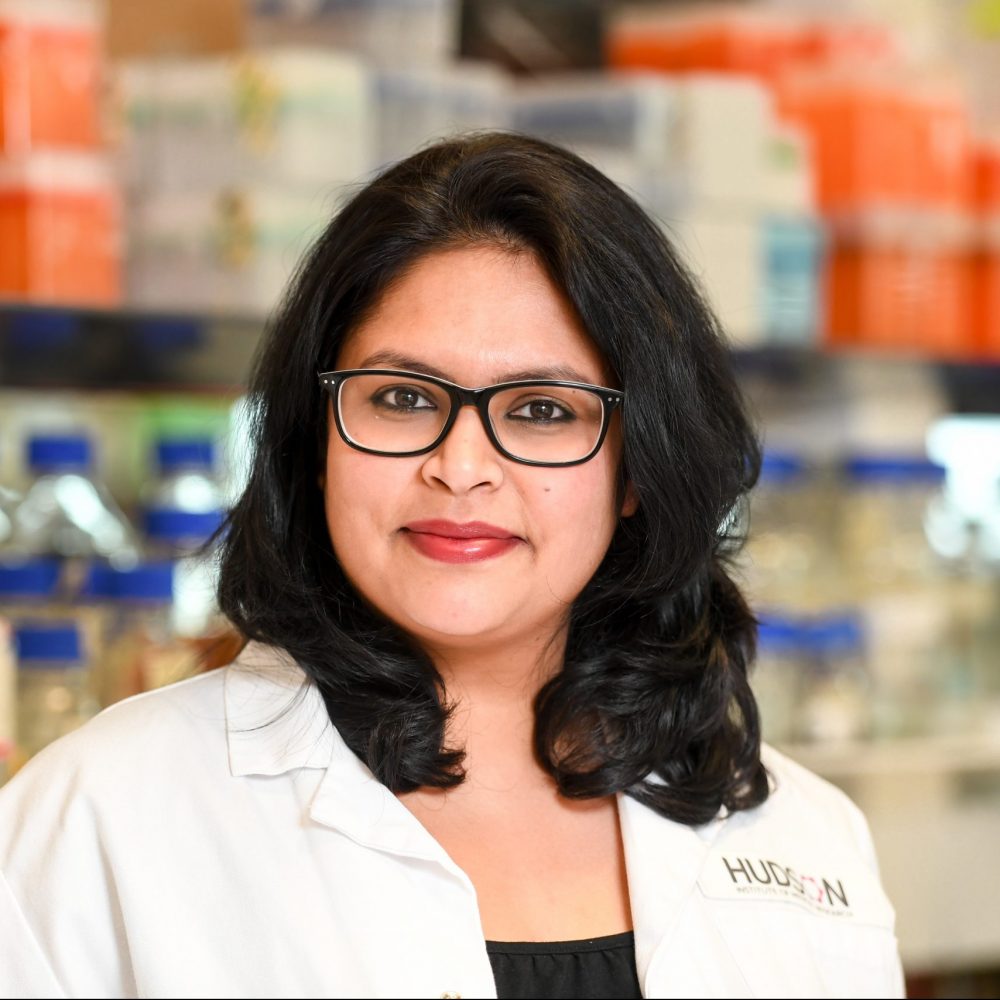Dr Shayanti Mukherjee
Pelvic organ prolapse (POP) is a debilitating condition that affects many women, soon after or many years after vaginal birth. There is currently no reliable cure for POP. My research involves using adult stem cells from the lining of a woman’s own uterus, engineered with biodegradable materials, to develop effective and effective treatments.

Areas of interest
Research group
Translational Tissue Engineering
Biography
Dr Shayanti Mukherjee specialises in innovative cell-based therapies for pelvic floor disorders and birth trauma injuries.
She completed her PhD at the National University of Singapore where her work contributed to the growing body of nanostructured biomaterials design for repair and regeneration of soft tissues. Her research encompasses principles of material science, nanotechnology, stem cell biology and immunology to improve maternal urogynecological health.
Currently, her work involves the design of optimal meshes using degradable polymers and additives for improving the treatment of pelvic organ prolapse (POP). Dr Mukherjee and her team have designed novel tissue engineered stem cell based surgical constructs using solution electrospinning, 3D Printing and Melt electro writing.
Dr Shayanti Mukherjee, Head of the Translational Tissue Engineering Research group, specialises in innovative cell-based therapies for pelvic floor disorders and birth trauma injuries.
Dr Mukherjee also has a keen interest in bio-inks for stem cell bioprinting for personalising pelvic floor reconstructive surgery. She has a strong interest in biomaterial induced immune response and is an expert in evaluation of foreign body response using clinical models. The multi-dimensional research led by Dr Mukherjee aims to improve the understanding of the fundamental pelvic muscle physiology as well as accelerate the clinical translation of new generation surgical constructs for urogynecology.
Students with good academic records and interest in challenging multi-disciplinary tissue engineering and nanomaterials projects may enquire for PhD and other research project opportunities.
MORE ABOUT DR MUKHERJEE’S RESEARCH
Natural mesh provides hope for pelvic organ prolapse
Pelvic organ prolapse treatment closer
Pelvic organ prolapse prevention and cure
Closing the gap in tissue engineering
Student opportunities

Publication highlights



